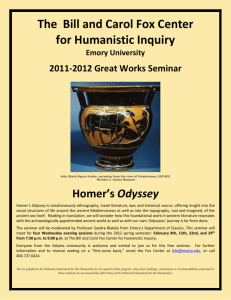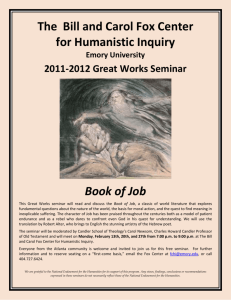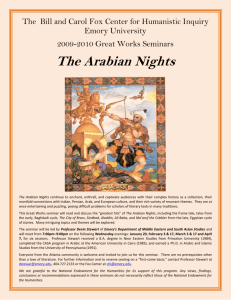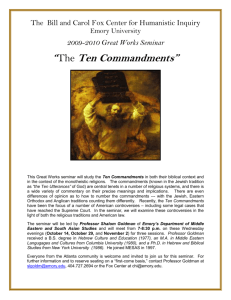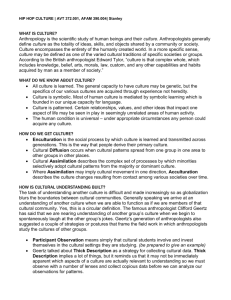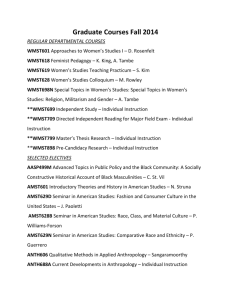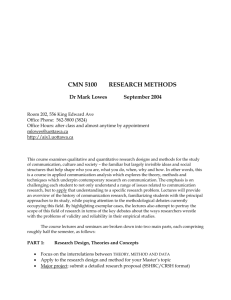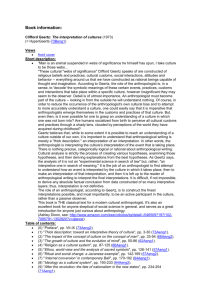The Bill and Carol Fox Center for Humanistic Inquiry
advertisement
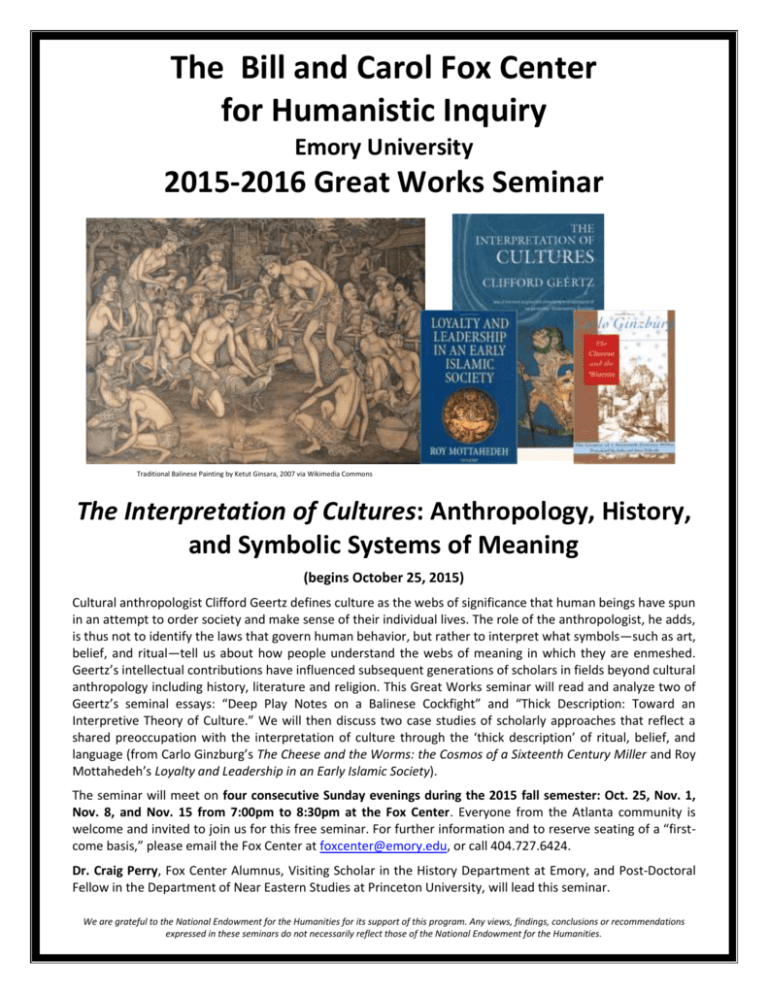
The Bill and Carol Fox Center for Humanistic Inquiry Emory University 2015-2016 Great Works Seminar Traditional Balinese Painting by Ketut Ginsara, 2007 via Wikimedia Commons The Interpretation of Cultures: Anthropology, History, and Symbolic Systems of Meaning (begins October 25, 2015) Cultural anthropologist Clifford Geertz defines culture as the webs of significance that human beings have spun in an attempt to order society and make sense of their individual lives. The role of the anthropologist, he adds, is thus not to identify the laws that govern human behavior, but rather to interpret what symbols—such as art, belief, and ritual—tell us about how people understand the webs of meaning in which they are enmeshed. Geertz’s intellectual contributions have influenced subsequent generations of scholars in fields beyond cultural anthropology including history, literature and religion. This Great Works seminar will read and analyze two of Geertz’s seminal essays: “Deep Play Notes on a Balinese Cockfight” and “Thick Description: Toward an Interpretive Theory of Culture.” We will then discuss two case studies of scholarly approaches that reflect a shared preoccupation with the interpretation of culture through the ‘thick description’ of ritual, belief, and language (from Carlo Ginzburg’s The Cheese and the Worms: the Cosmos of a Sixteenth Century Miller and Roy Mottahedeh’s Loyalty and Leadership in an Early Islamic Society). The seminar will meet on four consecutive Sunday evenings during the 2015 fall semester: Oct. 25, Nov. 1, Nov. 8, and Nov. 15 from 7:00pm to 8:30pm at the Fox Center. Everyone from the Atlanta community is welcome and invited to join us for this free seminar. For further information and to reserve seating of a “firstcome basis,” please email the Fox Center at foxcenter@emory.edu, or call 404.727.6424. Dr. Craig Perry, Fox Center Alumnus, Visiting Scholar in the History Department at Emory, and Post-Doctoral Fellow in the Department of Near Eastern Studies at Princeton University, will lead this seminar. We are grateful to the National Endowment for the Humanities for its support of this program. Any views, findings, conclusions or recommendations expressed in these seminars do not necessarily reflect those of the National Endowment for the Humanities.
